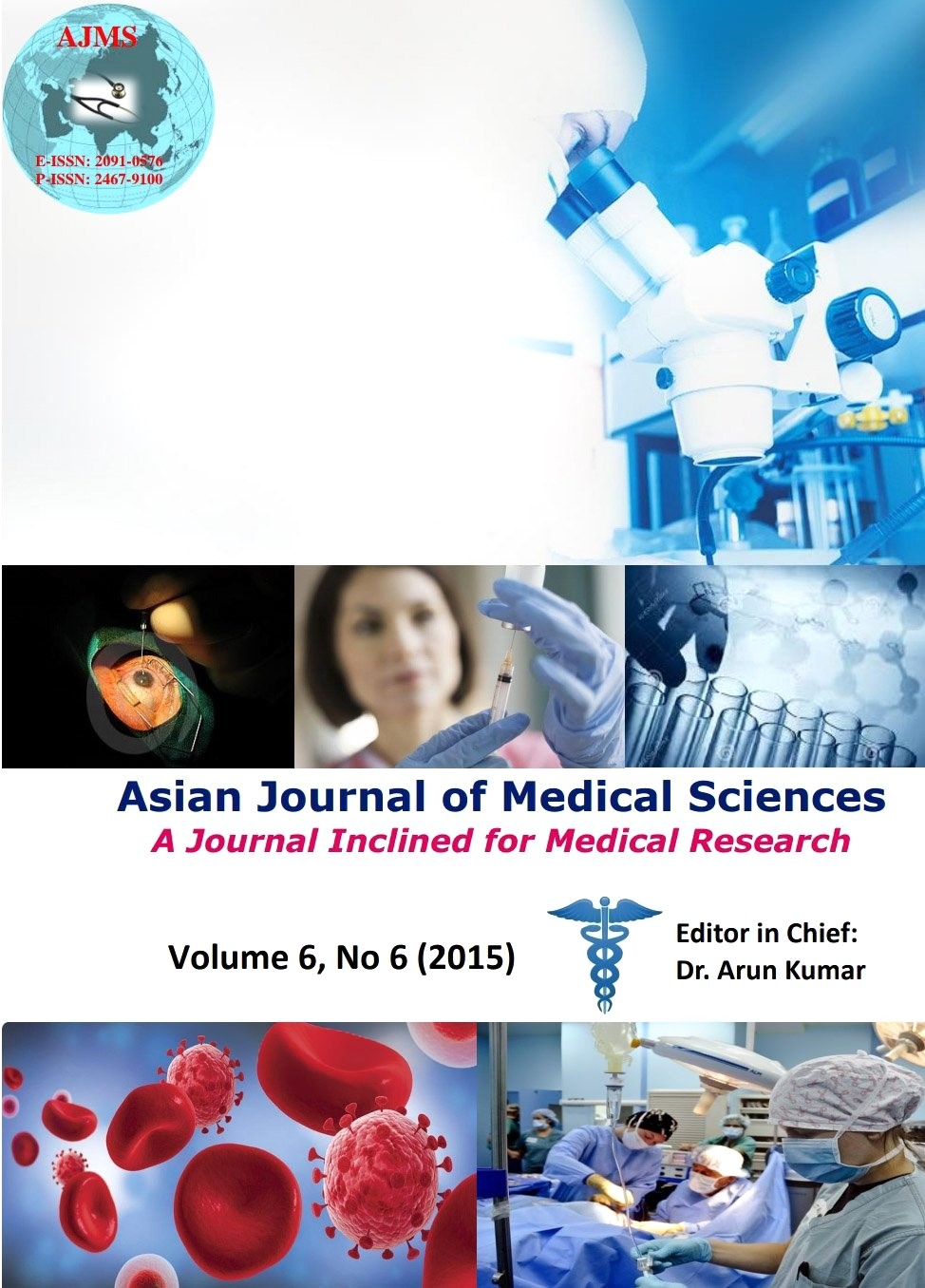Prevalence of thyroid dysfunction in patients with Type 2 diabetes mellitus and its correlation with insulin resistance and serum markers for autoimmune thyroiditis
Keywords:
Thyroid disorder, Type-2 Diabetes, Insulin resistanceAbstract
Background: The term “THYROID DIABETES” was coined in early literature to depict the influence of thyroid hormone excess in deterioration of glucose control. Although autoimmune thyroid disease is more prevalent in Type1 Diabetes mellitus as a result of their common origin, the prevalence of hypothyroidism and hyperthyroidism is supposed to be similar to that of general population in patient with type2 DM. The purpose of the study was to evaluate the prevalence of thyroid dysfunction in patients with type2 diabetes mellitus and to correlate thyroid abnormalities with insulin resistance and serum markers for autoimmune thyroiditis.
Methods: 120 cases of type2 diabetes mellitus patients satisfying WHO criteria without pre-existing thyroid disease were included in the study. Thyroid function test, fasting serum insulin was done.HOMA-IR & HOMA-B (HOMA-Homeostatic model assessment) was calculated. Serum antithyroid peroxidase anibody (anti-TPO) and antithyroglobulin antibodies (anti-TG) and ANA were done.
Results: Prevalence of thyroid dysfunction in type2 diabetes mellitus was 28.33% according to our study, which included overt hypothyroidism (15%), subclinical hypothyroidism (8.33%), secondary hypothyroidism (0.83%), overt hyperthyroidism (1.67%) and subclinical hyperthyroidism (2.5%). Anti TPO and anti TG antibodies were elevated in 62.07% cases of hypothyroidism, 40% cases of hyperthyroidism and 6.9% euthyroid cases of type2 DM. Anti TPO and antiTG antibodies were significantly raised in type2DM patient with hypothroidism than that of euthyroid (p value<0.0001). Compared to euthyroid diabetics, hypothyroid cases had lower values of insulin resistance markers like fasting insulin, HOMA-IR and HOMA-B. Hyperthyoid cases had higher values.
Conclusion: Hyperthyroid diabetics have higher insulin resistance as fasting insulin, HOMA-IR, HOMA-B showed negative correlation with TSH. (p value<0.05).
DOI: http://dx.doi.org/10.3126/ajms.v6i6.12603
Asian Journal of Medical Sciences Vol.6(6) 2015 33-38
Downloads
Downloads
Published
How to Cite
Issue
Section
License
Authors who publish with this journal agree to the following terms:
- The journal holds copyright and publishes the work under a Creative Commons CC-BY-NC license that permits use, distribution and reprduction in any medium, provided the original work is properly cited and is not used for commercial purposes. The journal should be recognised as the original publisher of this work.
- Authors are able to enter into separate, additional contractual arrangements for the non-exclusive distribution of the journal's published version of the work (e.g., post it to an institutional repository or publish it in a book), with an acknowledgement of its initial publication in this journal.
- Authors are permitted and encouraged to post their work online (e.g., in institutional repositories or on their website) prior to and during the submission process, as it can lead to productive exchanges, as well as earlier and greater citation of published work (See The Effect of Open Access).




